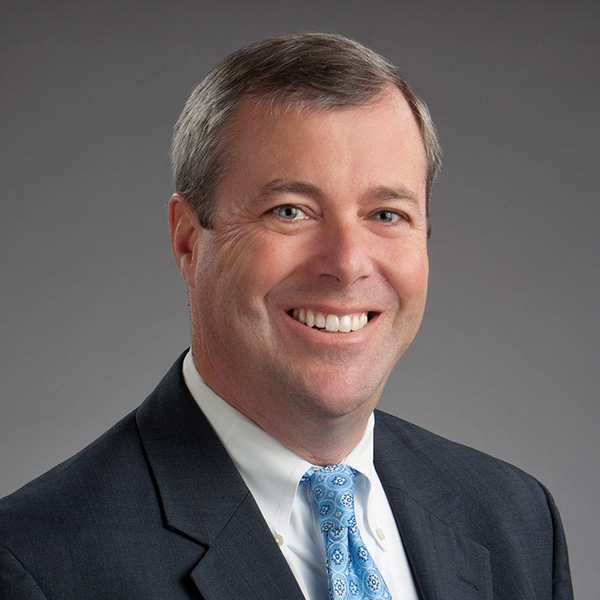We continue our new monthly column, On Leadership, created by Rose Ors for Thomson Reuters. Each month will feature conversations with law firm Chief Executive Officers and Managing Partners about how they are leading their law firms in today’s dramatically changing and highly competitive legal industry.
In this installment, Rose Ors talks to Chris Jagel, CEO of Harris Beach, a law firm with a history going back more than 160 years and 11 offices throughout New York, New Jersey and Connecticut.
Rose Ors: When you became CEO of the firm, what were your priorities?
Chris Jagel: Since becoming CEO in 2017, I have worked on continuing to grow our business intelligently, with a renewed focus on the economics underlying the business. I also have emphasized strengthening our collaborative, all-hands-on-deck culture. It is important that every person feels they are part of the firm, that their contributions are important, and are valued.
Rose Ors: How have you gone about doing that?
Chris Jagel: I have made it a priority to have meaningful two-way communication between management and all of the different parts of the firm. We created an Associate Advisory Committee, comprised of eight associates and senior counsel, one of whom participates in our weekly Management Committee meetings. The role of this advisory group is to present the concerns and recommendations of the firm’s associates and senior counsel to the firm’s Management Committee. I also meet with the Advisory Committee chair at least quarterly.
We also created a Professional Staff Committee, modeled, in some ways, on the Associate Advisory Committee. Since professional staff comprise more than 50% of our people, ensuring that their voice is heard, and their input is considered is critically important to us.
Less formally, I have created a special email address dubbed, Hey Chris, where anyone in the firm can shoot me an email with a recommendation or complaint. Hey Chris is an effort to demonstrate that I am accessible, I am interested, and I care about what they think and feel.
Rose Ors: Those sound like great forums for obtaining feedback from the firm. What methods do you use to communicate with those in the firm?
Chris Jagel: Before the COVID-19 crisis, Barry Kozak, our COO, and I, would go on a road show several times each year. We would visit each office and deliver a presentation on important things going on with the firm. We are now putting together our first virtual road show. The road show not only keeps people in the loop, it also makes Barry and me accessible to everyone in the firm.
We also launched Chris On the Beach, a periodic newsletter I send to everyone in the firm in which I talk about some of the firm’s initiatives, highlight the application of our values to our operations, and spotlight our wins and successes. I also share the ideas and recommendations I have received in Hey Chris.
Rose Ors: How are you leading Harris Beach through the COVID-19 crisis?
Chris Jagel: The COVID-19 response team we created in February has exemplified the best of our all-hands-on-deck culture. They have worked tirelessly — 80 hours some weeks, some weeks even more. They took us rapidly from where no one worked at home to where everyone works from home. Our office managers and our office managing partners have been equally committed.
All across the firm, the level of effort and willingness to pitch in to help the enterprise has been extraordinary. The resilience, grace, patience, and even humor, that everyone has demonstrated while we have raced to adapt is amazing. It demonstrates that, ultimately, we are relying on our culture to carry us through this crisis.

Rose Ors: Starting to prepare in February put you ahead of the curve. How did you know to start so early?
Chris Jagel: It was luck. My wife runs a not-for-profit corporation that has operations in the U.S., China, and India. Early in January, she got news that the impacts of COVID-19 had reached Shanghai, one of her locations, requiring it to suspend operations. Shanghai is not near Wuhan, and this news served as an early warning sign for me that Harris Beach had to ready itself in case the virus reached the U.S.
Rose Ors: What have been the most difficult decisions for you?
Chris Jagel: We have instituted some across-the-board salary reductions. We also have furloughed some people whose positions do not fit during the period that we are in a work-from-home environment. We intend to bring those people back when the circumstances warrant it, and it was a very hard decision to make. We’ve taken the approach of shared sacrifices.
Rose Ors: How have those decisions been received?
Chris Jagel: It is probably an overstatement to say they have been embraced, but I feel the decisions have been understood. The best I could do, and continue to do, is to keep everyone abreast of our priorities and our decisions. No one has been surprised by the steps we have taken. Indeed, a number of people have reached out to me to say, ‘I really appreciate the way the firm has decided to handle this. I really appreciate the level of information that has been provided.’
Rose Ors: Shifting to a different, but important, topic for you and your firm: diversity and inclusion. What is your approach to D&I?
Chris Jagel: Diversity and inclusion are part of our DNA. Inclusion is literally one of firm’s five core values. We have had a dedicated firm committee focused on inclusion and diversity for more than 15 years. We believe that increasing the perspectives and input that go into the decisions that we make and the advice we provide results in better decisions and better advice.
Diversity does not happen without commitment. We actively work with law schools across the state to broaden our pool of candidates. We cast a similarly wide net to fill positions held by professionals who are not lawyers.
Rose Ors: What drives your commitment to D&I?
Chris Jagel: I think the business case for D&I is indisputable when simply looking at the benefits we get from different voices. It also is important when dealing with the expectations our clients have of their law firms. And it is simply the right thing to do.
So, as someone leading an enterprise, working to increase D&I is sound business. But as an individual, my personal commitment is a product of my living abroad as a child. When I was six years old, my family moved to Japan. I was thrust into a culture where I didn’t understand the language, and I looked different. I attended school with Japanese kids and the kids of expatriates from countries all over the world. Those experiences helped me understand how it feels to be “the other” and showed me the strengths and benefits that come from bringing together many different backgrounds, experiences, and perspectives. I was fortunate enough to live in Taiwan when I was in high school under similar circumstances, which reinforced those feelings.
Rose Ors: How would you describe your leadership philosophy?
Chris Jagel: I subscribe to Gandhi’s maxim, “Be the change you want to see.” I believe in walking the walk, not just talking the talk. I also believe that, in my position, taking responsibility is more important than taking credit.
If something turns out to be a problem, it is my responsibility. If something turns out to be great, it is something we did, not that I did.
This interview has been edited and condensed by Rose Ors.






